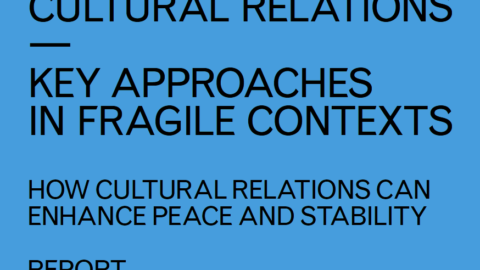The report entitled ‘Cultural Relations – Key Approaches in Fragile Contexts’ aims to examine the linkages between culture, conflict and peace, with a particular focus on the place of international cultural relations in so-called ‘fragile’ countries and regions. Commissioned by the European Union National Institutes for Culture (EUNIC), the British Council and the Institut für Auslandsbeziehungen (ifa), the report has been elaborated in a context of increasing attention to the connections between culture, conflict and peace. It ultimately aims to inform EU and national policies in development, stability and peace, on how cultural relations can contribute to peace and stability in fragile contexts.
The Organisation for Economic Co-operation and Development (OECD) characterises ‘fragile contexts’ as ‘the combination of exposure to risk and insufficient coping capacities of the state, system and/or communities to manage, absorb or mitigate those risks’ (OECD, 2021). A multidimensional fragility framework has been developed, which identifies five dimensions: economic, environmental, political, security and societal fragility. Fragility can be understood as a continuum and is partly connected to sustainable development.
Cultural relations, as understood in the report, relate to the international cultural activities involving national institutes for culture and their partners in other countries, based on principles and goals of mutual understanding and sustainable dialogue. Although cultural relations can often encompass several areas of work, in this report the emphasis lies on programmes and projects related to the arts, creative activities, tangible and intangible heritage, leaving aside other areas like language learning or education.
Read the entire text of the report here.
